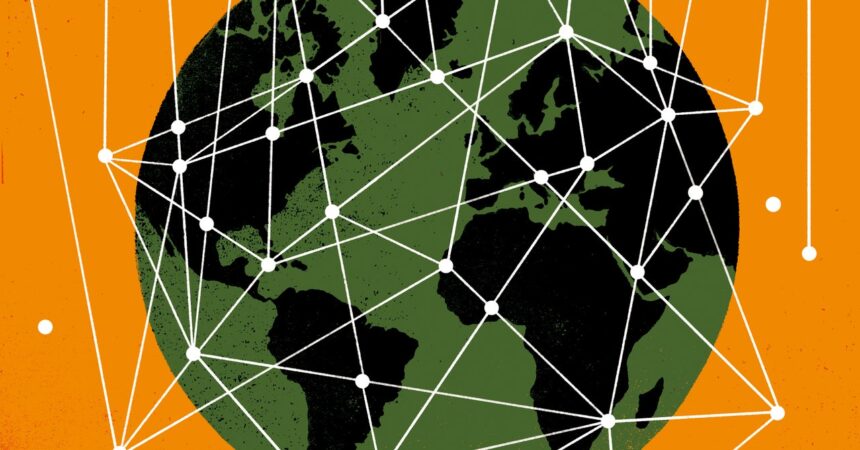AI and Geopolitics: A Shift Towards Cooperation in 2025
As the world navigates the complexities of artificial intelligence (AI) and geopolitics, a significant transformation is projected to take place by 2025. Recognizing that national interests are best served by collaboration and innovation, global leaders are expected to pivot from a narrow focus on competition, particularly through the lens of AI nationalism, towards a more cooperative future. This shift emerges against the backdrop of a decade that has seen rapid advancements in AI technology and escalating tensions among major powers.
The Dual Nature of AI Discourse Post-ChatGPT
The years following the launch of ChatGPT in 2022 were marked by a paradoxical combination of both enthusiasm and trepidation regarding AI’s potential. While investment in AI reached unprecedented levels in 2023, a growing chorus of tech luminaries—including notable figures like Elon Musk and Steve Wozniak—voiced concerns about its implications for society. An open letter urging a six-month pause on AI development more powerful than GPT-4 highlighted the underlying anxiety surrounding technological advancement. Comparisons of AI to existential threats, such as nuclear war and pandemics, underscored the urgency of addressing the ethical dimensions of this technology.
This tumultuous background has, understandably, influenced political discourse about AI. As explored by the AI & Geopolitics Project at Cambridge University, there has been an alarming increase in AI nationalism—where countries view artificial intelligence as a zero-sum game rather than a domain for mutual growth.
Nationalism in the Age of AI
The roots of AI nationalism can be traced back to strategic initiatives launched by nations vying for technological dominance. President Xi Jinping’s 2017 announcement of China’s ambition to become an AI superpower by 2030 exemplified this trend. The "New Generation AI Development Plan" set aggressive goals to achieve world-leading levels of AI innovation by 2025, placing China firmly in competition with the United States.
In response, the U.S. enacted policies like the CHIPs and Science Act of 2022, aimed at restricting semiconductor exports to bolster domestic AI capabilities. Following this, an executive order in 2024 put mechanisms in place to limit U.S. investment in AI endeavors within China, further entrenching this adversarial atmosphere.
AI nationalism tends to frame technological advancement as a battleground, inviting comparisons to the arms race of the Cold War. In that era, while seeking technological superiority, the United States also harnessed statecraft and diplomatic awareness to promote an open and visionary approach to space exploration. Treaties emerged to avoid the militarization of space and to declare it as a global commons. Unfortunately, today’s AI landscape has largely lacked this kind of proactive, expansive political leadership.
A Turning Tide in 2025
However, signs of potential change are on the horizon. The upcoming AI Summit in France in 2025 is poised to herald a shift towards cooperative dialogue and practical solutions. President Emmanuel Macron has signaled his intention to redefine the summit’s focus, moving beyond a restrictive framing of AI risk to address solutions and global standards that ensure societal benefits from technology.
Additionally, in 2024, the United Nations launched initiatives aimed at fostering inclusive discussions on AI, recognizing that not all countries have had a seat at the table. This collaborative approach underscores a growing acknowledgment of the need for a united front in addressing AI’s challenges and opportunities.
Tentative diplomatic engagements between the U.S. and China have also begun to emerge, indicating a willingness to find common ground. The establishment of a bilateral consultation channel on AI suggests that even historical adversaries recognize the importance of working together in this rapidly evolving field.
Conclusion
As we approach 2025, the dynamics of AI and geopolitics may well be on the cusp of transformation. The world’s leading powers appear ready to embrace diplomacy over nationalism, fostering an environment where collaborative frameworks can flourish. The outcomes of forthcoming international dialogues will significantly influence how countries navigate the balance between competition and cooperation in the age of AI.
In a more interconnected world, understanding that the challenges of AI transcend national borders could pave the way toward an innovative and inclusive future. By prioritizing dialogue and collaborative strategies, we can harness the true potential of AI—ensuring that it serves humanity, rather than divides it.










